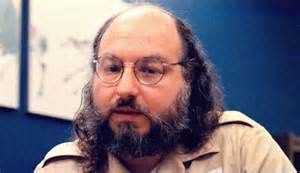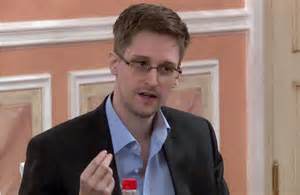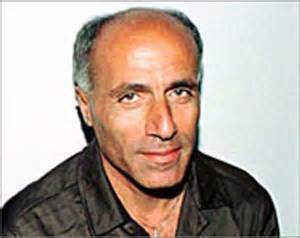Pondering Jonathan Pollard’s Release
TRANSCEND MEMBERS, 10 Aug 2015
Richard Falk – TRANSCEND Media Service
 No more confusing mind games are played by sovereign states than in the context of ‘espionage,’ ‘treason,’ and the work of the professional spy. All important governments seek secret knowledge of what other governments and their leaders are doing and planning, and it matters little whether these governments are allies or adversaries, especially with respect to espionage. Espionage is the unseemly twin of secrecy, and national security is becoming ever more dependent on a country keeping its own secrets while learning those of others. In the amoral world of global espionage there are shockingly surprising cooperative liaisons, and bargains worked out behind closest doors even with the direst of enemies. Treason (and patriotism) are closely related to the ethos of espionage, and exhibit the politically correct subservience of individual conscience to the security policies of the state.
No more confusing mind games are played by sovereign states than in the context of ‘espionage,’ ‘treason,’ and the work of the professional spy. All important governments seek secret knowledge of what other governments and their leaders are doing and planning, and it matters little whether these governments are allies or adversaries, especially with respect to espionage. Espionage is the unseemly twin of secrecy, and national security is becoming ever more dependent on a country keeping its own secrets while learning those of others. In the amoral world of global espionage there are shockingly surprising cooperative liaisons, and bargains worked out behind closest doors even with the direst of enemies. Treason (and patriotism) are closely related to the ethos of espionage, and exhibit the politically correct subservience of individual conscience to the security policies of the state.
Edward Snowden’s massive disclosures were confusing in this respect as he disclosed secrets about what amounted to acts of de facto espionage carried out by the government against American citizens, as well as others. In effect, the surveillance apparatus of the U.S. Government was abolishing the distinction between ‘self’ and ‘other’ or ‘friend’ and ‘enemy’ in world politics. For some, this made Snowden a traitor guilty of treason because he disclosed to the world some premium national security secrets of his own government. For others, Snowden was a hero as he acted benevolently, sacrificing his personal wellbeing, career, and safety to warn the publics of the world, but above all the American public, that the government was abusing its powers in fundamental ways, threatening to privacy and the very fabric of democracy. Snowden acted from the belief that expectations of trust and privacy should be the first principle of a functioning constitutional democracy as the United States purports to be. This does not mean that security claims can never be given precedence, but that their scope should be constrained by strong evidence justifying specific actions, and that meta-data consisting of indiscriminate and totalizing forms of surveillance are fundamental threats to republican commitments to constrain government in state/society relations.
The latest example of this confusing and contradictory optic that pertains to the work of a spy is illustrated by the controversy swirling around the scheduled release on November 20th of Jonathan Pollard who has been in prison since being convicted of espionage on behalf of Israel 30 years ago. As with Snowden, there are many liberals, and even some on the left, in the intelligence community, and among anti-Israelis who view the decision to release Pollard as setting a horrible precedent. The argument being made is that if Pollard had not been a Jewish-American ardent Zionist with ties to Israel he would have been sentenced to death as a traitor, and such a punishment would be deserved given the secrets he passed to Israel. Others point out that Pollard had become a bargaining chip in relations between Israel and the United States, and that his release was an expression of cynical geopolitics, a way of softening the anger in Tel Aviv associated with the Iran Nuclear Agreement that is viewed by Israel, both its leaders and most of its public as a dangerously imprudent initiative.
James North and Philip Weiss question the release from the treason angle. They contend that Pollard’s release is dubious because he provided Israel with information during the Cold War that allegedly was then likely traded to the Soviet Union (reportedly in exchange for allowing Jews to emigrate) that might have disclosed information to Moscow that exposed American agents to death or capture.[“MSM avoids central Pollard question: Did Israel trade secrets with Soviets for emigres?” Mondoweiss, July 30, 2015] For this reason, the crimes of Pollard cannot be excused or mitigated as acts of conscience to protect Israel from threats associated with undisclosed activities in hostile Arab neighbors, and his parole is rendered as problematic. It is never made clear in this line of reasoning whether Pollard was privy to such secondary uses made of his work as a spy in the pay of Israel, and whether that should make any difference in assessing the case for parole. Parole should be granted or withheld based on the behavior of a convicted person during his time in prison and the degree to which his release might produce further harm to society.
There is a question underlying this debate about the relationship between conscience and national identity. Is obedience to the laws of the state of residence and nationality the highest claim on behavior? I believe that a principled and reasonable disregard for national law could morally and politically justify acts of espionage of the sort that Pollard was alleged to have committed, including a genuine dedication to the promotion of the opportunity for Soviet Jews to emigrate to Israel. Apparently, conscience was not the main motivator for Pollard, and for this reason alone, he does pose a threat to society more serious than being one among thousands of rogue espionage entrepreneurs that pass secrets back and forth around the world as a matter of profession or for the sake of adventure and material gain. As such, whether Pollard is released or not is more a matter of public empathy than a question of whether or not his crime was such as to make his release either overdue or unacceptable.
Those who endorse Pollard’s release most enthusiastically are mainly drawn from the ranks of those who identify unconditionally with Israel, contending that he has already suffered too much, considering that he was acting on the basis of his Zionist conscience to provide Israel with highly classified intelligence information that it was supposedly, in any event entitled to receive from the U.S. Government according to a memorandum of understanding between the two governments. Beyond this, the claim being made by supporters is that Pollard has served already a disproportionately long prison sentence considering that his acts of espionage were on behalf of a government that was a friend and ally of the United States, and besides, that he has serious health issues that make his release justifiable on humanitarian grounds alone, especially given his age and harmlessness. Whatever knowledge Pollard may have had about U.S. secrets is 30 years old, and presumably worthless, making it purely vindictive to continue his imprisonment or impose strong conditions on his release. For Israel, Pollard became over the years a high profile symbolic hero (second only to the captured Israeli soldier Gilad Shalit) whose release was avidly sought on a priority basis by a string of prominent leaders including Yitzhak Shamir, Yitzhak Rabin, Shimon Peres, and Benjamin Netanyahu. It seems that the Israeli government wanted to show the depth of its commitment to someone whose liberty was lost because he acted to uphold Israeli security interests.
As a matter of public relations, Pollard’s release is being portrayed as an act of good will by the U.S. Government and as a routine exercise of discretion by parole authorities in a context where no convincing rationale exists for extending Pollard’s time in jail. Such a stance is opposed by some former top-ranked security officials, including Donald Rumsfeld, who contend that Pollard still has information that could damage U.S. security interests. In this regard, such right-wing critics of Pollard’s release claim that he possesses ‘a photographic memory,’ and thus continues to pose a threat to American security interests, surely vindictiveness disguised as paranoid patriotism.
Behind this argument about espionage, treason, loyalty, and parole is the strange person of Jonathan Pollard whose life as a master spy remains an enigma of multiple dimensions. Pollard would be a good model for an inverted 20th century version of Dostoyeski’s ‘underground man,’ living a lavish life style by reliance on dark and devious undertakings. It seems a no-brainer that Pollard should never have been hired as an intelligence analyst. His application for employment had been rejected by the CIA, apparently because of the numerous instabilities uncovered in his private life. Yet he was later inexplicably hired by U.S. Naval Intelligence despite the organization having reliable information that Pollard was a drug-using loose cannon whose multiple lies distorting his past were detected by a polygraph test. Although the facts are contested, it is well established that Pollard was a Zionist true believer drawn to the Israeli experience since his childhood. As a young adult he became a mercenary and mercurial spy in Israel’s pay. He actively sought, in collaboration with his first wife, to sell secret information to South Africa and even Pakistan as well as to Israel, partly to deal with private financial troubles that included heavy indebtedness. His behavior while serving as a U.S. Government employee seemed altogether bizarre, including his undisguised and careless seizure for private use of large quantities of highly classified materials outside his area of responsibility. He even had trouble convincing Israel, at first, that he could be trusted to provide useful information without detection, but after finally succeeding in gaining Tel Aviv’s confidence, was paid significant sums during his rather short career as a spy.
Nevertheless, in 1985 when Pollard was on the verge of being apprehended in the United States on spying allegations, he sought refuge in Israel’s Embassy in Washington. Israel embassy guards turned Pollard away, evidently not wanting Israel to be tarnished by their association with him. After leaving the embassy he was immediately arrested by U.S. enforcement officers waiting on the periphery. In keeping with this posture, Israel at first denied any involvement with Pollard, then in 1987 issued an apology to the U.S. Government for receiving information from Pollard. Israel only conceded the professional espionage relationship with Pollard in 1998. Perhaps, this earlier failure to protect someone on their payroll as a spy, explains Israel’s later full court press to gain Pollard’s release.
In my view, releasing Pollard is the proper course of action, not because of Israeli pressures, but despite them. President Obama tried to portray the release as a law enforcement issue, nothing more, nothing less. Because of the suspicious timing given the tensions associated with the Iran diplomacy and the resulting inflamed domestic political context, this effort to downplay the release did not gain traction. Pollard served long enough for the crimes that he committed, poses no credible threat to the security of any country, and behaved well as a prisoner. To deny parole for another 15 years would be unconscionable given these conditions, or even to condition its grant on forcing Pollard to remain in the United States appears vindicative.
In my view, espionage has long been one way clever people make a living, assuming the risks of detection and hypocrisies associated with criminalization of the activity. It is certainly within the prerogatives of the sovereign state to criminalize the improper use of the knowledge acquired in the course of public employment in an espionage capacity. What Pollard did was surely a breach of contract and trust that breaks national criminal law. Yet espionage may be morally and politically justified (and may be even imperative) in exceptional circumstances where truth-telling and whistle blowing serves as a safety valve against abusive forms of state secrecy and a variety of political dangers posed by government policies.
In this regard, it is illuminating to contrast Israel’s belated solidarity with Pollard to its determined hostility to Mordechai Vanunu, the Israeli employee at the Dimona nuclear facility who confirmed for the world that Israel had secretly developed nuclear weapons. Vanunu was made by Israel to pay a high price for his public service (compounded by his conversion to Christianity), spending 18 years in prison (11 in solitary confinement), and then upon release being put under a series of punitive constraints that have included several instance of brief reimprisonment for violating conditions of his release. In my view, Vanunu belongs on the same honor roll as Edward Snowden and Daniel Ellsberg who revealed state secrets that served the cause of national wellbeing and were also of benefit to humanity as a whole. Ellsberg has called Vanunu “the preeminent hero of the nuclear era.”
Pollard does not belong in this company. He seems more like an unstable and rogue opportunist than a self-sacrificing idealist even if his behavior is evaluated from an Israeli Zionist perspective. Perhaps, Pollard will partially redeem himself, and his legacy, by writing an honest memoir that unravels his mixed motives, tangled pre-prison life, and search for redemption. He seems to harbor no resentment against Israel for their refusal to give him sanctuary within their embassy back in 1985. On the contrary, while in prison he married an Israeli woman associated with the far right, seeks to be repatriated to Israel where he was awarded citizenship, and has expressed gratitude for those in the Israeli government who struggled for his release. Given Pollard’s past, it would not be surprising if he tells his story wrapped in an Israeli flag.
Those who criticize Pollard’s release on patriotic grounds, contending that his information helped an enemy (Soviet Union) or hurt the United States, are prioritizing loyalty to the state over competing considerations that could motivate such behavior. The ethos of treason as a high crime is the apotheosis of statist absolutism, overriding the exposure of the most extreme state crimes, for example, disclosing plans of a contemplated war of aggression initiated by a first strike with nuclear weapons. Calling Snowden or Vanunu ‘traitors’ is a perversion of moral principle, condemning those whose public acts deserve praise and protection given their nature. Not all disclosures of state secrets should be treated as expressions of civic virtue. Disclosures that violate the law to be justifiable must be deemed as sincere acts of public conscience that appear reasonable based on surrounding circumstances.
Loyalty to the state continues to be the north star of conventional patriotism. For the citizen pilgrim solidarity with an emergent eco-humanist insurgency is the keystone of 21st century political community and ethical responsibility deserving precedence when in conflict with nationalist and tribal affinities.
__________________________________
Richard Falk is a member of the TRANSCEND Network, an international relations scholar, professor emeritus of international law at Princeton University, author, co-author or editor of 40 books, and a speaker and activist on world affairs. In 2008, the United Nations Human Rights Council (UNHRC) appointed Falk to a six-year term as a United Nations Special Rapporteur on “the situation of human rights in the Palestinian territories occupied since 1967.” Since 2002 he has lived in Santa Barbara, California, and taught at the local campus of the University of California in Global and International Studies, and since 2005 chaired the Board of the Nuclear Age Peace Foundation. His most recent book is Achieving Human Rights (2009).
Go to Original – richardfalk.wordpress.com
DISCLAIMER: The statements, views and opinions expressed in pieces republished here are solely those of the authors and do not necessarily represent those of TMS. In accordance with title 17 U.S.C. section 107, this material is distributed without profit to those who have expressed a prior interest in receiving the included information for research and educational purposes. TMS has no affiliation whatsoever with the originator of this article nor is TMS endorsed or sponsored by the originator. “GO TO ORIGINAL” links are provided as a convenience to our readers and allow for verification of authenticity. However, as originating pages are often updated by their originating host sites, the versions posted may not match the versions our readers view when clicking the “GO TO ORIGINAL” links. This site contains copyrighted material the use of which has not always been specifically authorized by the copyright owner. We are making such material available in our efforts to advance understanding of environmental, political, human rights, economic, democracy, scientific, and social justice issues, etc. We believe this constitutes a ‘fair use’ of any such copyrighted material as provided for in section 107 of the US Copyright Law. In accordance with Title 17 U.S.C. Section 107, the material on this site is distributed without profit to those who have expressed a prior interest in receiving the included information for research and educational purposes. For more information go to: http://www.law.cornell.edu/uscode/17/107.shtml. If you wish to use copyrighted material from this site for purposes of your own that go beyond ‘fair use’, you must obtain permission from the copyright owner.



Pollard’s spying resulted in endangering the lives and possible deaths of U.S. intelligence agents. Releasing Pollard should help shine a light on the dysfunctional US-Israeli ‘special relationship’ which is at the root of much evil.
Snowden made some of the most important revelations in modern history about the covert operations conducted by USA intelligence agencies. Because he was charged under the Espionage Act of 1917, Snowden might not even be able to defend his case if he returned to the USA.
Before Mossad clubbed, drugged, gagged, bound and transported Mordechai Vanunu from Rome to Israel by boat [in 1986] Nuclear Physicist Frank Barnaby, interviewed him for three days and testified at Vanunu’s closed-door trial:
“I found Vanunu very straightforward about his motives for violating Israel’s secrecy laws he explained to me that he believed that both the Israeli and the world public had the right to know about the information he passed on. He seemed to me to be acting ideologically.
“Israel’s political leaders have, he said, consistently lied about Israel’s nuclear-weapons programme and he found this unacceptable in a democracy. The knowledge that Vanunu had about Israel’s nuclear weapons, about the operations at Dimona, and about security at Dimona could not be of any use to anyone today. He left Dimona in October 1985.”
In 2005, Vanunu told this American writer: “Did you know President Kennedy tried to stop Israel from building atomic weapons? In 1963, he forced Prime Minister Ben Guirion to admit the Dimona was not a textile plant, as the sign outside proclaimed, but a nuclear plant. The Prime Minister said, ‘The nuclear reactor is only for peace.’
“Kennedy insisted on an open internal inspection. He wrote letters demanding that Ben-Gurion open up the Dimona for inspection.
“When Johnson became president, he made an agreement with Israel that two senators would come every year to inspect. Before the senators would visit, the Israelis would build a wall to block the underground elevators and stairways. From 1963 to ’69, the senators came, but they never knew about the wall that hid the rest of the Dimona from them.
“Nixon stopped the inspections and agreed to ignore the situation. As a result, Israel increased production. In 1986, there were over two hundred bombs. Today, they may have enough plutonium for ten bombs a year.”